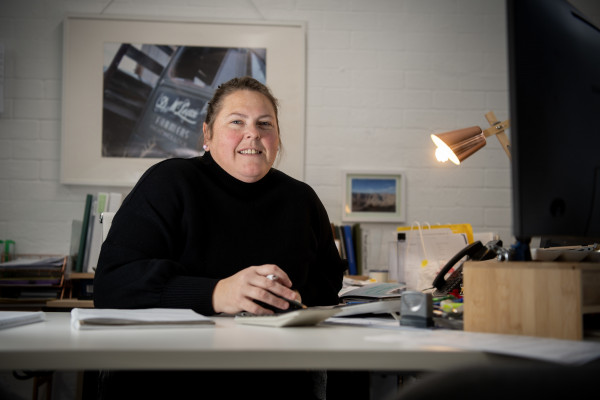MILDURA-based agribusiness financial specialist Janine McLean has said a recent Regional Investment Corporation (RIC) announcement of another rate rise is hardly likely to be greeted with open arms by the region’s primary producers.
The Agri Plus Financial Group adviser said any rate rise is never good news for farmers – including RIC’s news all its concessional farm business loans will increase by 19 basis points to 5.18 per cent from August 1.
But she says in perspective those numbers are still significantly below the commercial money market.
“Any rate rise will most likely impact on the bottom line of every agribusiness and means farmers need to sit down with their financial farm advisers, whether it is their account, farm consultant or financial advisers, like me,” Ms McLean says.
“At the moment my farming clients seem to be coping reasonably well.
“The industry’s baseline income from ongoing production improvements has improved and that base line income seem to be much more stable now than it was two or three decades ago, but it does still vary, year on year.
“I focus on dryland production because that’s my background.
“I grew up on a Mallee farm and my family still farms there, and it is a market I understand very well. But it is also a market which comes with its own stresses and pressures, because income flows are not regularly consistent, they are reliant on the annual harvest or livestock sales and until the money is in the bank, you are never 100 per cent sure what that income will be nor what your future holds.”
Ms McLean said the RIC news will only add to broadacre farmer disgruntlement, especially in north western Victoria, because it comes on top of Mildura Rural City Council’s decision to increase municipal rates for farmers by as much as 16 per cent.
She said it is not a viable argument to say because farmland values have risen, so should their rates.
“Farmers also face increasing input costs, labour costs, machinery costs, and have to manage that across 12 months on the back of a projected one-off major income after harvest,” Ms McLean said.
“That’s not even taking the weather and the global markets into account, and what these impacts might do to bottom lines.
“My business has such a strong emphasis on business and succession planning, so in regard to RIC loans, they are an important part of the strategy, especially when it comes to generational change or if farmers are looking at expanding acreage.
“They do take some time to work through, but they also have historically provided greater flexibility with regards to payment structures than the big banks, at least for an initial period.
“That’s something else farmers have to juggle, building off farm assets (super or investments), planning for a future which may involve expansion, what succession looks like and is there a need for the next generation to fund buyouts from parents or siblings, plan retirements and take into consideration the impacts of potential aged care costs.
“Doing all that without a regular weekly income, with an eye on the sky, an eye on markets and that doesn’t even factor in the cost-of-living pressures everyone is facing.
“We are all trying to cut costs, so when people look for cheaper food at the supermarkets, they (supermarkets) tend to drop their prices, but not their margins, and once again, it is the farmer who is last in line and whose income gets hit the hardest.
“Which is why being sensitive to rate rises like this, and having a strong understanding of how those outside forces will impact you by using expert advice, is so important.”
















